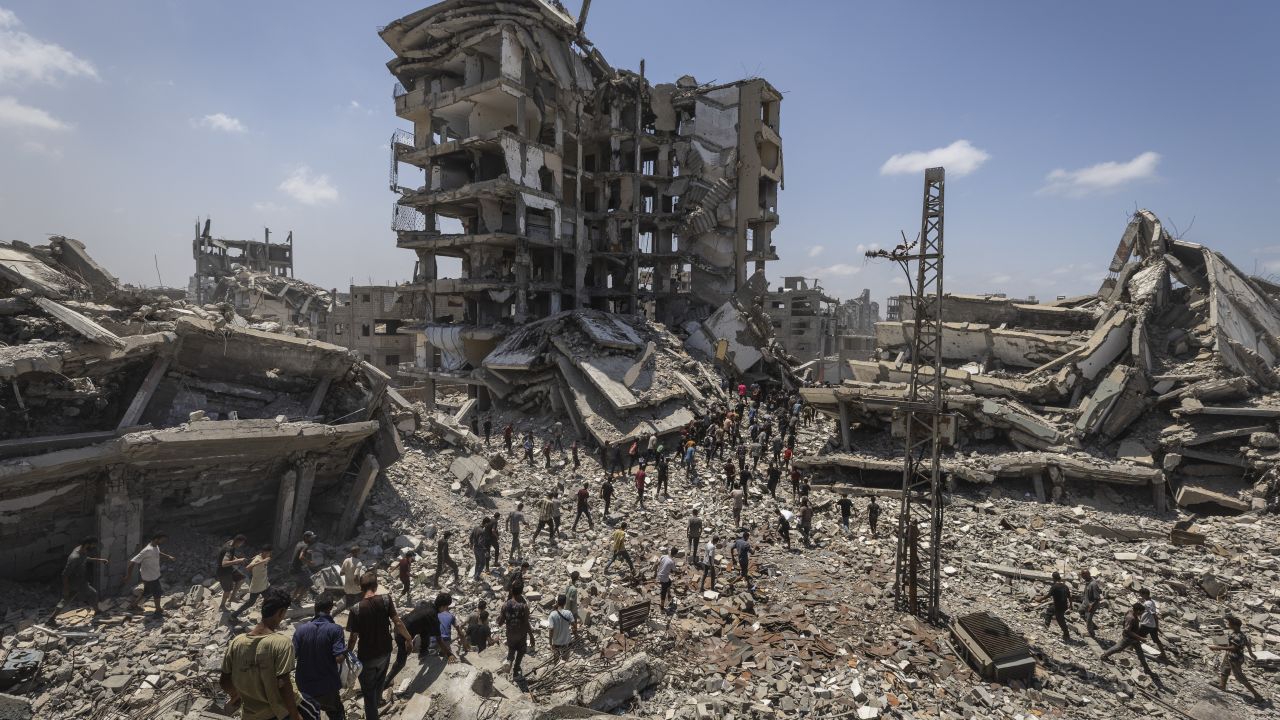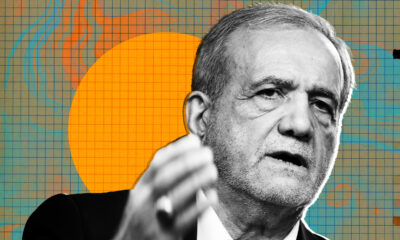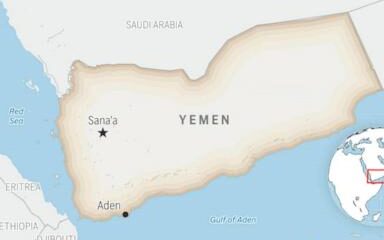Health
Former Negotiator Warns of Challenges in Gaza City Occupation

Former US State Department Middle East negotiator Aaron David Miller has raised significant concerns regarding Israeli Prime Minister Benjamin Netanyahu‘s proposal to occupy Gaza City. Miller emphasizes that such a military operation would likely face numerous complications, making it a daunting task for the Israeli Defense Forces (IDF).
In a recent interview, Miller outlined the challenges that an occupation would entail, particularly in terms of military logistics and political ramifications. He underscored that Gaza City, a densely populated urban area, poses unique difficulties due to its complex infrastructure and the presence of various militant groups.
Logistical Challenges of Occupation
Miller explained that occupying a city like Gaza would require substantial resources and manpower. He noted that the IDF would need to prepare for potential urban warfare, which can lead to high casualties among both military personnel and civilians. The implications of such an operation would not only alter the battlefield dynamics but could also escalate tensions in the region.
Additionally, Miller pointed out that the international community’s response would be critical. Any significant military action in Gaza City could provoke widespread condemnation and lead to diplomatic isolation for Israel. This could further complicate Israel’s already delicate relations with neighboring countries and international organizations.
The former negotiator emphasized that the human cost of an occupation would be severe. He highlighted the potential for increased civilian casualties and the humanitarian crisis that could ensue, which would likely attract global scrutiny.
Political Implications and Regional Stability
Miller also addressed the political implications of Netanyahu’s plan. He argued that a successful occupation would require not only military success but also a viable political strategy to govern the area post-occupation. The lack of a clear plan could lead to a power vacuum, potentially allowing extremist groups to gain influence and destabilize the region further.
The complexities surrounding governance in Gaza cannot be overlooked. Miller noted that any attempt to establish order would face resistance from various factions within the territory, complicating any long-term strategy for peace.
In light of these factors, Miller’s assessment paints a challenging picture for Israel’s ambitions in Gaza City. As the situation evolves, the potential repercussions of an occupation will remain a focal point of discussion among policymakers and analysts alike.
Overall, the prospect of occupying Gaza City raises critical questions about military feasibility, regional stability, and humanitarian considerations. With tensions in the Middle East continuing to simmer, the international community will undoubtedly be watching closely as developments unfold.
-

 Technology4 months ago
Technology4 months agoDiscover the Top 10 Calorie Counting Apps of 2025
-

 Health2 months ago
Health2 months agoBella Hadid Shares Health Update After Treatment for Lyme Disease
-

 Health3 months ago
Health3 months agoErin Bates Shares Recovery Update Following Sepsis Complications
-

 Technology3 weeks ago
Technology3 weeks agoDiscover 2025’s Top GPUs for Exceptional 4K Gaming Performance
-

 Technology2 months ago
Technology2 months agoElectric Moto Influencer Surronster Arrested in Tijuana
-

 Technology4 months ago
Technology4 months agoDiscover How to Reverse Image Search Using ChatGPT Effortlessly
-

 Technology4 months ago
Technology4 months agoMeta Initiates $60B AI Data Center Expansion, Starting in Ohio
-

 Technology4 months ago
Technology4 months agoRecovering a Suspended TikTok Account: A Step-by-Step Guide
-

 Health4 months ago
Health4 months agoTested: Rab Firewall Mountain Jacket Survives Harsh Conditions
-

 Lifestyle4 months ago
Lifestyle4 months agoBelton Family Reunites After Daughter Survives Hill Country Floods
-

 Technology3 months ago
Technology3 months agoUncovering the Top Five Most Challenging Motorcycles to Ride
-

 Technology4 weeks ago
Technology4 weeks agoDiscover the Best Wireless Earbuds for Every Lifestyle





















